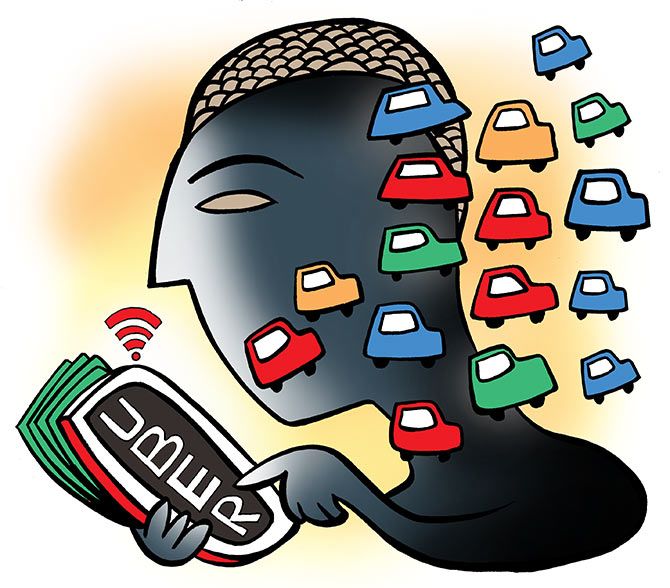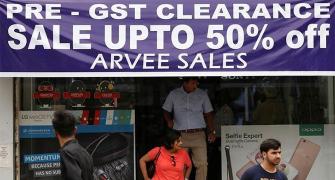Experts say the overall sentiment in leasing industry is very low because of the GST and on provisions for double taxations.

Under the new indirect tax regime, leasing of goods is regarded as a service and attracts a levy. This has created complexities for airlines, cab aggregators and cab leasing companies, even as they grapple with teething issues of implementation of the goods and services tax (GST).
Among the many issues faced by airlines, the anomaly in terms of input tax credit for the economy class and dual taxation on aircraft leasing top the list.
According to the rules, while input credit arising from procurement of both goods and services can be used in case of business class, input credit from services alone can be used for off-setting tax liability with respect to economy class travel.
“Similar to business class, full input tax credit should be given to economy class ticketing too,” said a senior airline executive.
The airlines have also raised the issue of dual taxation on aircraft leasing. Under the new norms, aircraft leasing will attract a dual levy -- once at the time of import as Customs duty and again when lease rentals are paid as GST on services.
Under the previous taxation system, cross-border aircraft leases by scheduled airlines were not subject to Customs duty, central excise and value-added tax (VAT).
“We have sought continuation of the tax exemption. The impact is largely related to cash flows, as we will be able to claim an input credit against tax liability on sale of tickets and cargo space,” said a senior executive from Air India.
Air India pays a lease rent of around $350,000 for its narrow-body Airbus aircraft and around $1 million for its wide-body Boeing 787 aircraft.
Among domestic airlines, IndiGo has the largest capacity induction plan. IndiGo, which ended FY17 with 131 aircraft, plans to induct 39 more in FY18.
Other airlines, including AirAsia, GoAir, Spicejet and Vistara, also have inductions lined up this year. Air Asia India Chief Executive Officer Amar Abrol said an airline’s leasing cost may increase by Rs 12 crore per aircraft due to this.
Officials in aviation ministry said they were awaiting clarification on these issues from the ministry of finance. The ministry has also opened a GST clarification centre, where the airlines can clarify their doubts about the new tax regime.
Cab aggregators such as Ola and Uber, as well as its drivers, are facing almost double the taxes on leasing under the GST.
Industry experts expect lease rentals to increase 18-19 per cent. According to Orix India, a leasing finance company for wholly-owned subsidiary of Orix Japan, as the tax on services will increase from 15 per cent to 18 per cent, there will be a direct increase in cost for the businesses that give transportation facility to their employees or rented cars to their management, etc.
The cost of cars which were leased during pre-GST and equated monthly instalments (EMIs) being paid after GST will become more expensive.
“The cost of EMIs on such cars will go up as much as up to 30 per cent. It is expected that a consumer who was paying an EMI of Rs 30,000 before the GST was implemented, will now have to pay Rs 45,000 on the same car,” the firm said.
Striking a low note, Orix India said that it expected its Rs 75-crore leasing business to go down to Rs 15-20 crore after the GST implementation. They anticipate the chances of default on payments are set to rise.
App-based cab aggregators such as Uber hope that dialogue on the issue with the authorities might help them get a resolution.
“There are still some open discussions on GST on leasing, there are some conversations that are happening, not just us, others are also doing the same,” said Amit Jain, president, Uber India.
Experts said that the overall sentiment in leasing industry is very low because of the GST and on provisions for double taxations.
Automakers, however, believe that even after higher taxes leasing business would flourish.
“A new business model of leasing may emerge. Leasing industry will continue to grow, though the pace may vary,” said Rakesh Srivastava, director (sales and marketing) at Hyundai.
Illustration: Uttam Ghosh/Rediff.com.










